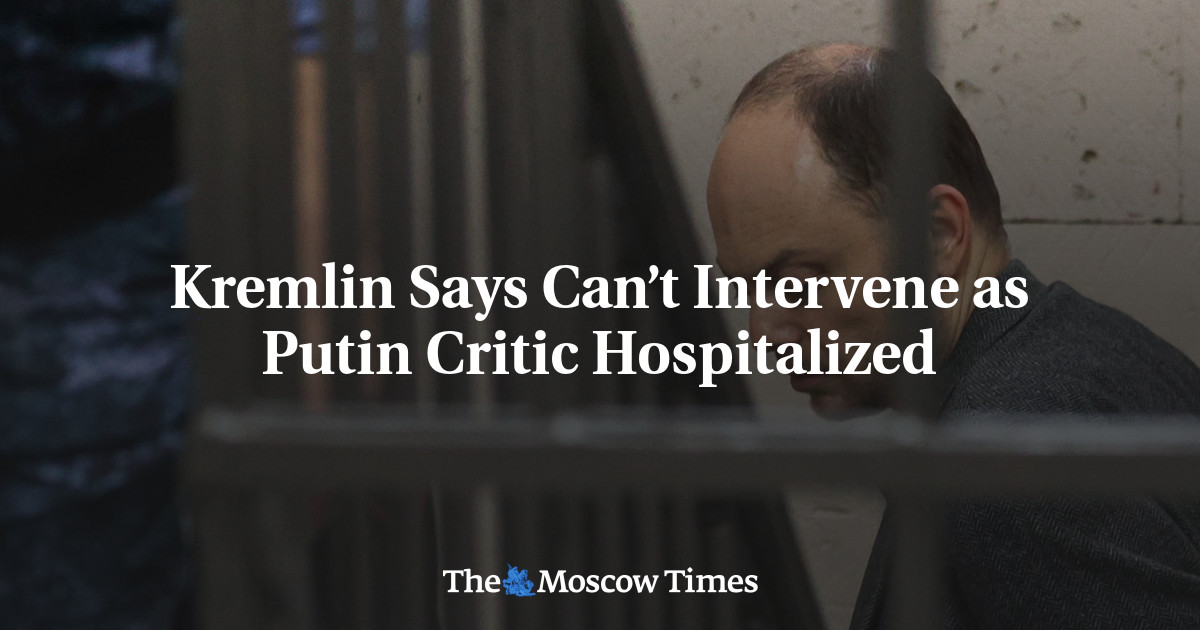
The Kremlin said Wednesday that it could not intervene in the situation of imprisoned government critic Vladimir Kara-Murza, who was hospitalized last week without access to lawyers or family, raising fears over his state.
Kara-Murza, one of President Vladimir Putin’s most vocal critics and a dual British and Russian citizen, is serving a 25-year sentence at a penal colony in Siberia for treason and other charges after being convicted last year.
His health is feared to have deteriorated in prison, where he is kept in harsh conditions and medical care is limited.
His wife Evgenia Kara-Murza said Friday that he had been transferred from the colony to a prison service hospital, but his lawyers and family say they have no information about his health and have been barred from visiting him.
Kremlin spokesman Dmitry Peskov told journalists that “unfortunately we do not have the opportunity to observe this situation,” saying the prison service is responsible and “this is not among our prerogatives.”
Kara-Murza, a British-educated 42-year-old opposition activist and journalist, suffers from a nerve disease after falling severely ill in 2015 and 2017 in what he says were poisonings orchestrated by Russia’s FSB security service.
On Tuesday, his wife wrote on X that “today lawyers were again not allowed in [to the hospital]. We don’t know anything about Kara-Murza since July 2.”
Russia’s treatment of Kara-Murza is a “chilling act of inhumanity,” a rapporteur with the Council of Europe rights body said Tuesday.
His lawyer Vadim Prokhorov said in comments posted by supporters of Kara-Murza on Tuesday evening that the “lack of contact in a situation when there is a risk to life is especially concerning.”
“The pessimistic scenario is that his condition has got worse,” Prokhorov said.
“On July 2 when meeting a lawyer he felt as usual but everything can change very quickly,” he said, citing opposition leader Alexei Navalny, who died in prison in February, a couple of days after he was seen on a video link.
Blocking access to lawyers is a violation of both Russian and international law, Prokhorov told Reform Journal, suggesting that Russian authorities were to blame.
“As we suppose, the responsibility for not allowing access, lies with Moscow — it’s unlikely the hospital itself took this decision,” Prokhorov said.